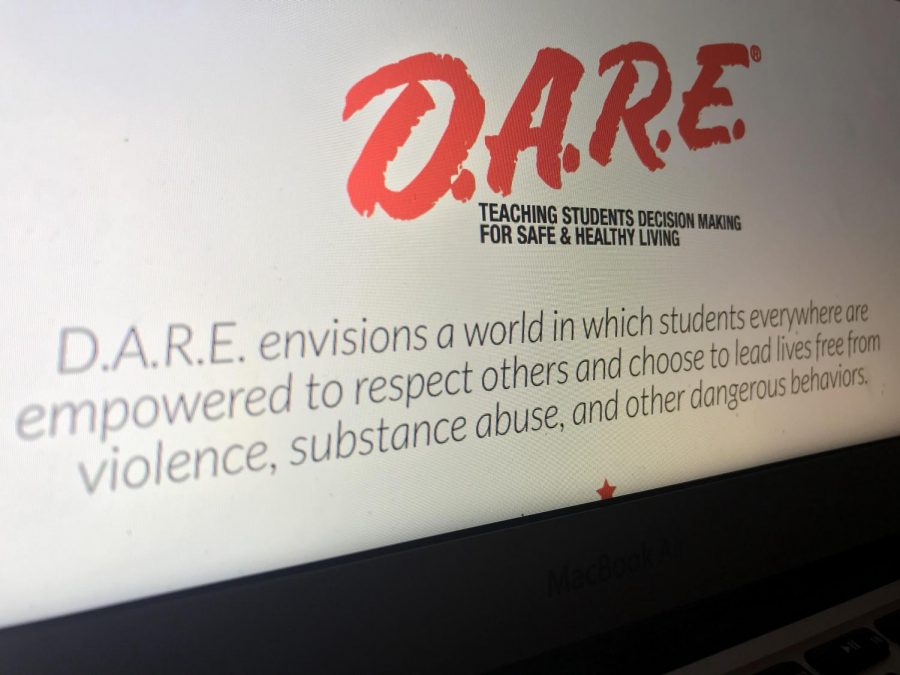The Absence of D.A.R.E.
One of the most prolific attempts of drug prevention has slowly been removed from popular culture.
D.A.R.E. promotional material is based around their message as a company. It is currently absent in school communities similar to Antioch Community High School.
The Drug Abuse Resistance Education program, commonly referred to as D.A.R.E., is noticeably absent from the area of Antioch. For students that have recently transferred to this district, this program is a missing link that many believe is crucial for students to learn. Sophomore Nicholas Taylor learned from D.A.R.E. at Faith Lutheran the importance of avoiding drugs.
“They would show us real-life examples where there would be real stories about what happened when someone uses drugs and the after effects,” Taylor said. “I learned that drugs were addictive and they did not cause good things to happen.”
The D.A.R.E. program started in the 1980s coinciding with First Lady Nancy Reagan’s famous “Just Say No” campaign. In the following years, the program was used around the country and around the world as an effective method of drug education. Freshman Cole Ellars saw no major results from the program at his former school before he moved to Illinois.
“I don’t really notice any results,” Ellars said. “The only D.A.R.E. assembly I ever attended was in Virginia one time a year ago and it’s not doing its job in the school.”
As time went on, budget cuts for county police departments lead to the program going away. Now, for example, Antioch Community High School has a required health class that talks about drugs and other important topics regarding drug use. Sophomore Nolan Scofield thinks the absence of D.A.R.E. in Antioch is outdated information.
“I feel like if they redid the program it would be helpful,” Scofield said. “But at the moment I don’t see it helping if it’s just the way it’s been for the past decade.”
In recent years, the D.A.R.E. program has begun a resurgence with the county budgets finally allowing for the education to resume. They recently added an opioid section to the curriculum, like other additions such as internet safety and bullying. Taylor hopes the program continues to protect the youth of the United States with smart methods of drug prevention.
“I don’t think we will get back to the [popularity] of the nineties,” Taylor said. “But I feel like it could someday in the future.”
States like Utah are trying to implement D.A.R.E. to keep students safe and teach the new opioid curriculum to prevent drug abuse. Scofield thinks if a similar thing were to happen in Illinois, teaching prevention would need to go along with treatment for drug abuse.
“I guess they could have also included ways to get out of doing drugs,” Scofield said. “Because some people are already addicted to them and they don’t know how to get out of that habit.”
The D.A.R.E. program’s motto is teaching students decision making for a safe and healthy life, and with a revamp in teaching, it is unclear how the new generation of students will receive the information.


